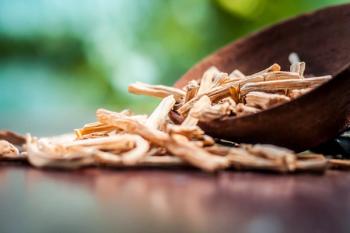
Turmeric and curcumin may influence gut microbiota, says new pilot study
A new pilot study published in the Journal of Evidence-Based Integrative Medicine evaluated the effects of turmeric and curcumin on gut microbiota.
A new pilot study published in the Journal of Evidence-Based Integrative Medicine1 evaluated the effects of turmeric and curcumin on gut microbiota. In this prospective, single-center, evaluator-blinded randomized pilot study, researchers gave 30 subjects either turmeric tablets, curcumin tablets, or placebo, and then evaluated changes in the subjects’ gut microbiota, including increases in the diversity of microbiota species.
Subjects received either 1) turmeric tablets containing 1,000 mg turmeric root plus 1.25 mg black pepper–derived extract of bioavailability-enhancing piperine alkaloid (BioPerine), 2) curcumin tablets containing 1,000 mg of curcumin extract Curcumin C3 Complex plus 1.25 mg BioPerine, or 3) placebo tablets that matched the shape and size of the turmeric and curcumin tablets, all of which were provided by Sabinsa Corp. (East Windsor, NJ). Subjects were told to take three tablets with food, twice per day, totaling 6,000 mg per day total. Subjects were screened at baseline, week four, and week eight post-treatment.
Results showed that while the placebo group saw an overall reduction of bacterial species by 15%, turmeric-treated subjects saw an increase of 7% and curcumin-treated subjects saw an increase of 69%. The researchers noted that the responses of the gut microbiota to turmeric and curcumin was subject-specific and non-uniform across individuals, but they observed patterns that were not random compared to the placebo group, which showed no discernable pattern. “Interestingly, the patterns of microbial species abundance changes for all of these subjects in both the turmeric and curcumin treatment groups were highly similar, which suggests that curcumin was the major driver of microbiota composition alterations,” they write.
Subjects responsive to the treatment had uniform increases in most Clostridium spp., Bacteroides spp., Citrobacter spp., Cronobacter spp., Enterobacter spp., Enterococcus spp., Klebsiella spp., Parabacteroides spp., and Pseudomonas spp., as well as reduced relative abundance in several Blautia spp. and most Ruminococcus spp. Both turmeric and curcumin altered the gut microbiota in similar ways, the researchers said. They attribute the effects of turmeric to the catabolism of polysaccharide components in the plant’s root, noting that this would make it a prebiotic. However, researchers had trouble figuring out how curcumin influences gut microbiota, as curcumin cannot serve as a direct energy source for microbiota and is therefore unable to meet the definition of a prebiotic. The researchers posit that the way in which subjects absorb the curcumin/turmeric affects how effective the nutrients are as prebiotics.
Prebiotics are ingredients that are not easily digestible and are therefore able to pass through the digestive tract into the colon to feed the microbiome there. However, if an ingredient like curcumin or turmeric is quickly asorbed by the body, the ingredients have less of a chance to proliferate in the colon and exert their prebiotic effects. “It is conceivable that participants that efficiently absorbed turmeric or curcumin in the small intestine reduced the potential prebiotic effect of turmeric and prebiotic-like effects of curcumin in the colon (i.e., site of action for prebiotic effects) as reflected in stool samples, given that more substrate would be absorbed in the small intestine and thus less substrate would arrive in the colon in such circumstances,” the researchers wrote. “Conversely, subjects displaying poor absorption of these herbs in the small intestine may display the greatest prebiotic effects in the colon due to increased concentrations of prebiotic compounds arriving at the site of action in the colon or host-driven alterations of microbiota affecting colonic populations.”
Despite promising results, they are rather limited considering that only 16 of the 30 subjects provided stool samples: four in the placebo group, five in the curcumin group, and six in the turmeric group. The inclusion of piperine extract also makes it unclear whether the changes in microbiota can be attributed entirely to turmeric or curcumin, since piperine has also been shown to promote the growth of microbiota. As a pilot study, the results presented here should provide sufficient cause for replicating the study with a larger cohort, as well as more tightly controlled parameters such as diet, and using turmeric and curcumin alone without piperine.
References:
1. Peterson CT et al. “Effects of turmeric and curcumin dietary supplementation on human gut microbiota: a double-blind, randomized, placebo-controlled pilot study.” Journal of Evidence-Based Integrative Medicine, vol. 23 (2018): 1-8
Newsletter
From ingredient science to consumer trends, get the intel you need to stay competitive in the nutrition space—subscribe now to Nutritional Outlook.




